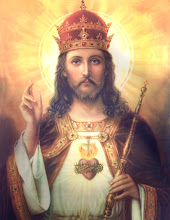The French Revolution is still with us in every way. Not only are its ideas everpresent, but there is much in its historic evolution that can teach us in North America no less than in Europe. Its initial period began with the undermining of traditional values and ideas, coupled with the demand for moderate reforms. With Voltaire a whole series of scoffers, facile critics, and agnostics in the literal sense of the term made their appearance. They subverted religion, convictions, traditions, and loyalties on which state and society rested. The process of decomposition and putrefaction always starts at the top - in royal palace, the presidential mansion, among the intellectuals, the aristocracy, the wealthy, the clergy - and then gradually enmeshes the lower social layers. In this process it is interesting to notice how the high and mighty develop a sense of guilt and with readiness to abdicate, to yeld to expropriation, to submit to the loss of privileges, in other words, to commit suicide politically and economically. For this masochist act, however, they are well prepared by the ideological propaganda coming from their own ranks. In the case of French Revolution we had in Louis XVI not a representative of either "reaction" or "conservatism" but an avid reader of the Encyclopédie (...). The members of nobility who took part in the intellectual or political undermining of the ancien régime and then participated in the Revolution are very numerous; whitout their support the French Revolution is well-nigh unimaginable. Among its forerunners we encounter Holbach, Grimm, and Madame d'Epernay, and later Mirabeau, Noailles, Malesherbes, Victor Claude, de Broglie, Clootz, Condorcet, Robespierre, Custine, Saint Just, Clermont-Tonerre, de Séchelles, Bissy d'Anglas, Barras, Collot d'Herbois, Corday d'Armont, Rouget de Lisle, Sade, Lafayette, Lanjuinais, the brothers Lameth, Barère de Vieuzac, and the Duc d'Orléans. In compiling such an inventory one is inevitably reminded of the fact that, statistically speaking, the natural death of states and nations as well of classes and estates, is not murder but suicide. However, this act of suicide is usually preceded by a period of delusions and follies. Quem deus vult perdidi prius dementat.
Erik von Kuehnelt-Leddihn - Leftism - 1974
Subscrever:
Enviar feedback (Atom)
















0 comentários:
Enviar um comentário